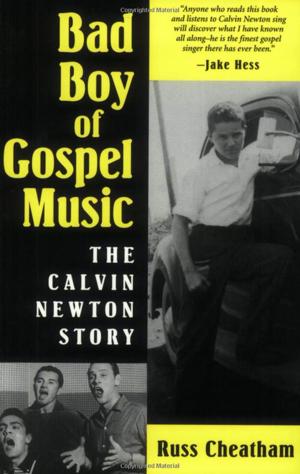When They Blew the Levee
Race, Politics, and Community in Pinhook, Missouri
Nonfiction, Social & Cultural Studies, Social Science, Discrimination & Race Relations, Cultural Studies, African-American Studies| Author: | David Todd Lawrence, Elaine J. Lawless | ISBN: | 9781496817747 |
| Publisher: | University Press of Mississippi | Publication: | May 30, 2018 |
| Imprint: | University Press of Mississippi | Language: | English |
| Author: | David Todd Lawrence, Elaine J. Lawless |
| ISBN: | 9781496817747 |
| Publisher: | University Press of Mississippi |
| Publication: | May 30, 2018 |
| Imprint: | University Press of Mississippi |
| Language: | English |
In 2011, the Midwest suffered devastating floods. Due to the flooding, the US Army Corps of Engineers activated the Birds Point-New Madrid Floodway, one of the flood prevention mechanisms of the Mississippi Rivers and Tributaries Project. This levee breach was intended to divert water in order to save the town of Cairo, Illinois, but in the process, it completely destroyed the small African American town of Pinhook, Missouri.
In When They Blew the Levee: Race, Politics, and Community in Pinhook, Missouri, authors David Todd Lawrence and Elaine J. Lawless examine two conflicting narratives about the flood--one promoted by the Corps of Engineers that boasts the success of the levee breach and the flood diversion, and the other gleaned from displaced Pinhook residents, who, in oral narratives, tell a different story of neglect and indifference on the part of government officials. Receiving inadequate warning and no evacuation assistance during the breach, residents lost everything. Still after more than six years, displaced Pinhook residents have yet to receive restitution and funding for relocation and reconstruction of their town. The authors' research traces a long history of discrimination and neglect of the rights of the Pinhook community, beginning with their migration from the Deep South to southeast Missouri, through purchasing and farming the land, and up to the Birds Point levee breach nearly eighty years later. The residents' stories relate what it has been like to be dispersed in other small towns, living with relatives and friends while trying to negotiate the bureaucracy surrounding Federal Emergency Management Agency and State Emergency Management Agency assistance programs.
Ultimately, the stories of displaced citizens of Pinhook reveal a strong African American community, whose bonds were developed over time and through shared traditions, a community persisting despite extremely difficult circumstances.
In 2011, the Midwest suffered devastating floods. Due to the flooding, the US Army Corps of Engineers activated the Birds Point-New Madrid Floodway, one of the flood prevention mechanisms of the Mississippi Rivers and Tributaries Project. This levee breach was intended to divert water in order to save the town of Cairo, Illinois, but in the process, it completely destroyed the small African American town of Pinhook, Missouri.
In When They Blew the Levee: Race, Politics, and Community in Pinhook, Missouri, authors David Todd Lawrence and Elaine J. Lawless examine two conflicting narratives about the flood--one promoted by the Corps of Engineers that boasts the success of the levee breach and the flood diversion, and the other gleaned from displaced Pinhook residents, who, in oral narratives, tell a different story of neglect and indifference on the part of government officials. Receiving inadequate warning and no evacuation assistance during the breach, residents lost everything. Still after more than six years, displaced Pinhook residents have yet to receive restitution and funding for relocation and reconstruction of their town. The authors' research traces a long history of discrimination and neglect of the rights of the Pinhook community, beginning with their migration from the Deep South to southeast Missouri, through purchasing and farming the land, and up to the Birds Point levee breach nearly eighty years later. The residents' stories relate what it has been like to be dispersed in other small towns, living with relatives and friends while trying to negotiate the bureaucracy surrounding Federal Emergency Management Agency and State Emergency Management Agency assistance programs.
Ultimately, the stories of displaced citizens of Pinhook reveal a strong African American community, whose bonds were developed over time and through shared traditions, a community persisting despite extremely difficult circumstances.















